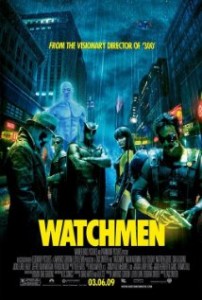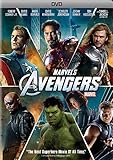Throughout the last 20 years an overwhelming increase in the number of films about people with special powers has taken comic book movies from fringe to front and center. Super Hero movies, particularly those with origins in comic books, command budgets upwards of one-hundred million dollars, and frequently gross several times that. Why has a form of entertainment once relegated to basement conversations over games of Dungeons and Dragons, become le film du jour? It may have something to do with the gradual replacement of traditional forms of narrative, such as religious texts and shamanic writings, with more commercialized easier-to-digest forms of story-telling. If this is true, super heroes, in a sense, have become the god figures of modern culture. One might initially reject this as either a blasphemous dismissal of the importance of religion, or as a pie in the sky conjecture, and it may be a little of both, but the fact remains that audiences love to go see guys with super powers fight other guys with super powers. The remarkable thing is the similarity between beloved characters like Spider-man, Iron Man, Batman, other heroes who add the word “man” to a noun in different ways, and deistic pantheons of ancient world religions.
Thor is a little to obvious so let’s dig a bit deeper. When it came out in 2002 Sam Raimi’s Spider-Man shattered box office records, and along with its counterparts, X-men, and Unbreakable resurrected comic book films from obscurity and ridicule, but there’s more than just financial success to explain the sudden rush of fandom to these franchises. Spider-man in particular has always been a young man’s comic. The story of gifted, but ostracized Peter Parker, becoming the coolest, wittiest, most righteous crusader for justice and people with crushes on Red Heads everywhere, resonates deeply with young men who are just starting to work out their views of themselves and how they fit into the world around them. Spider-man however, is not the first character to serve as a proxy for teenagers. Hercules was half-man half god, slew monsters with multiple appendages, was praised equally for his wit and strength and got started doing his semi-godly duties when he was just a boy. The analogy isn’t  perfect, but it’s certainly present.
perfect, but it’s certainly present.
There are many such analogies to be made. Batman, like the Roman God of the underworld Pluto, is fabulously wealthy, lives underground, and administers justice. Superman is a fairly obvious sun deity à la, Ra, Jesus, or Mithras. The case can even be made that the entire Justice League serves as a proxy for the Greek Pantheon. Comic book writers, particularly in the Marvel realm, even go as far as including actual mythical figures like Thor, Artemis, Hercules, and Hades, which are all featured characters in the Marvel and DC universes.
The idea of super hero fables as allegory was certainly not lost on Alan Moore when he wrote Watchmen, nor on Zack Snyder when he directed the film adaptation, and Dr. Manhattan exists as a perfect example of the deified tendencies of super-powered beings. The interesting conclusion that Watchmen makes however, is that it is not super-powers, but the moral indignation of normal human beings that truly amounts to heroism. Dr. Manhattan is a bit of an absent father, while Night Owl and Rorschach are tireless vigilantes for true justice. You know who else is blue? Krishna, the personification of Hindu god-hood. Like Dr. Manhattan, Krishna is a bit aloof by western standards, but represents the sum total of all a human could ever hope to be, except, well, human. Dr. Manhattan is contrasted with two of the most western heroes imaginable, a man who uses industry (even a railroad) to solve his problems, and a homeless man who literally sees everything in black and white. Through their interactions, the audience is shown the problems with each of their systems of thought.
Obviously there’s a lot of money to be made with these big budget summer blockbuster style films, but why has such an obscure form of entertainment found the limelight over the last decade? It may have something to do with the human tendency to seek out stories that inform our own lives. Where normal life is boring, and moral decisions are often grey and complex, superheroes live in a world where bad guys deliver evil monologues and all the boring bits are cut out. In a sense superhero movies skip everything about normal life that’s boring, and cut straight to the cause and effects of the most significant actions in the protagonist’s life. They allow for a clear picture of justice, and righteousness, and simultaneously, evil and manipulation.
Could it be that these films resonate with people in the same way mythologies and religion used to? Perhaps the millions of dollars people spent to see The Avengers, was a sort of tithing as all these people subconsciously reaffirmed what they believed was good about the world. Of course it’s a bit of a stretch to imply that the Hulk is a deity that must be worshipped, but perhaps he is an allegory about the power of anger, and the struggle of developing an identity. Perhaps Iron Man is a 21st century parable about the responsibility of the wealthy to not be complacent. It is possible, that more than they draw from ancient religions, and myths, they are simply creating new ones.
Here are some of the best allegorical comic book movies.
(2008) The Dark Knight
(2012) The Avengers
(2013) Man of Steel
(2003) Hulk
(2008) Hancock
(2009) Watchmen
(2004) Spider-man 2

